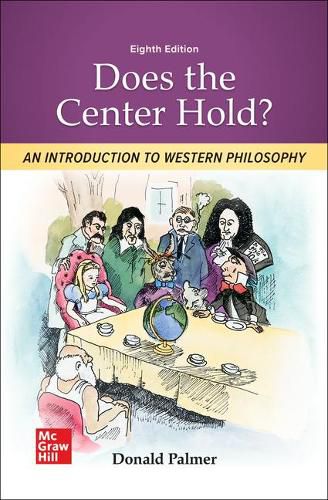Readings Newsletter
Become a Readings Member to make your shopping experience even easier.
Sign in or sign up for free!
You’re not far away from qualifying for FREE standard shipping within Australia
You’ve qualified for FREE standard shipping within Australia
The cart is loading…






Does the Center Hold? is an entertaining, topically-organized introductory program with more than 500 original illustrations. The ideas and issues typically covered in introductory philosophy courses are presented here in a remarkably accessible and enjoyable manner. With the help of small questions used to tackle the boarder inquiry, students learn to appreciate the details and walk away with an appreciation of philosophy. Donald Palmer demonstrates that serious philosophical inquiry may be perplexing, but is ultimately liberating, and students will come away from the book with a comprehensive, and often delighted, understanding of philosophy. One of the strengths of this book is found in the connections it makes between philosophy and other fields in which students are interested, especially art, literature, physics, sociology, psychology, and psychoanalysis. Students will realize that there is a certain kind of philosophical analysis and form of argumentation whose skills can be learned and applied in other areas of their lives, both personal and professional.
$9.00 standard shipping within Australia
FREE standard shipping within Australia for orders over $100.00
Express & International shipping calculated at checkout
Does the Center Hold? is an entertaining, topically-organized introductory program with more than 500 original illustrations. The ideas and issues typically covered in introductory philosophy courses are presented here in a remarkably accessible and enjoyable manner. With the help of small questions used to tackle the boarder inquiry, students learn to appreciate the details and walk away with an appreciation of philosophy. Donald Palmer demonstrates that serious philosophical inquiry may be perplexing, but is ultimately liberating, and students will come away from the book with a comprehensive, and often delighted, understanding of philosophy. One of the strengths of this book is found in the connections it makes between philosophy and other fields in which students are interested, especially art, literature, physics, sociology, psychology, and psychoanalysis. Students will realize that there is a certain kind of philosophical analysis and form of argumentation whose skills can be learned and applied in other areas of their lives, both personal and professional.